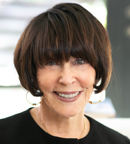
Ellen V. Sigal, PhD
Over 40 years ago, I lost my dear sister, Gale, to cancer. She left behind a beautiful 4-year-old daughter and a grieving family. Driven by this profound loss, I was determined to ensure that no other family would face that same heartbreak. That resoluteness led to the founding of Friends of Cancer Research and a lifetime devoted to accelerating innovation in cancer treatment, breaking barriers to accessing care, and giving patients a fighting chance against this disease.
Today, that fight has become personal once again. I have been diagnosed with a nonaggressive type of kidney cancer—a diagnosis that, thanks to decades of research and progress, is treatable. As I reflect on the scientific breakthroughs we have championed, I am profoundly grateful to the researchers, policymakers, and advocates who have made it possible for me to face this diagnosis with optimism.
Yet, even with my deep understanding of the workings of our complex health-care system and access to a network of extraordinary minds, it’s been frustrating to navigate such a technologically disconnected system, and, at times, the process has been overwhelming. I’ve experienced firsthand the dilemma of receiving test results on my patient portal days before my physician has had the chance to provide clarity on their meaning.
The process of understanding treatment options, coordinating care, and managing the emotional weight of a diagnosis is a reminder that progress in science must be matched by progress in patient care.
The process of understanding treatment options, coordinating care, and managing the emotional weight of a diagnosis is a reminder that progress in science must be matched by progress in patient care.— Ellen V. Sigal, PhD
Tweet this quote
Achieving Patient-Centered Care
My cancer diagnosis has reinforced a simple truth: No patient with cancer—regardless of his or her knowledge, connections, or resources—should have to face these challenges alone. Although we’ve made incredible strides in treatment and research, there is much more to be done to ensure that all patients can access the care they need without having first to overcome unnecessary and burdensome hurdles. Increased patient navigation services and resources as well as better communication and interoperability among health systems is vital to achieving patient-centered care.
Overcoming Future Challenges
As I begin my treatment, I do so with a renewed sense of purpose. I am more determined than ever to realize the mission of Friends of Cancer Research to accelerate progress toward better tools for the prevention, detection, and treatment of cancer and to work even harder for a health-care system that matches the remarkable progress we’ve made in science.
Once I beat this diagnosis—and I will—I plan to redouble my efforts to ensure that all patients, no matter their circumstances, have access to the most innovative new medicines and can navigate their cancer journey with dignity, clarity, and hope.
This is not just my fight. It’s all of ours. Together, we’ve made the impossible possible in cancer, and we will overcome difficult challenges again—for every patient, every family, and every future we strive to protect.
DISCLOSURE: Dr. Sigal reported no conflicts of interest.
Dr. Sigal is the founder and Chair of Friends of Cancer Research.

